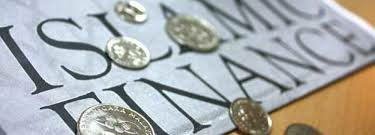Zillur Rahaman
Islam covers all the aspects of human life, financial management is not the exception. Islamic finance is closely related to the interest free financial services industry. Banking industry contributes a lot in the economic development of our country. As like, Islamic Banks have also significant contributions towards the growth and economic development of not only in Bangladesh but also in global market.
With the growing market demand and rapid expansion of Islamic finance, recently the Bangladesh Bank has approved the proposals of two conventional scheduled banks, NRB Global Bank and Standard Bank, to turn those into full-fledged Islamic banks with a view to reap benefit of the growing popularity of the segment.
With the approval of NRB Global and Standard, the number of full-fledged Islamic banks rose to 10 in Bangladesh. Besides, 18 conventional banks have Islamic banking branches and windows. Two financial institutions have also so far been introduced as completely shariah-compliant based non-banking financial institutions over the past three decades.
Islamic banking, popularly known as non-interest banking, is a banking system based on the principles of Islamic or Sharia law and guided by Islamic economics. Two fundamental principles of Islamic banking are the sharing of profit and loss, and the prohibition of the collection and payment of interest by lenders and investors. Islamic law prohibits collecting interest or “riba.”
Typically, financial transactions within Islamic banking are a culturally distinct form of ethical investing based on Halal assets and equity. For example, investments involving alcohol, gambling, pork, and other forbidden items are prohibited. Risk-sharing and profit-sharing must be structured into contracts, investments should enhance society, and financing should be backed by assets. Islamic banks have developed tools to address these constraints and perform their basic function: to take deposits, invest them, and profit from the spread. Sharia boards acted as a safeguard against the excess of conventional finance.
In tandem with the global rapid expansion of Islamic banking, Bangladesh has experienced a strong growth in Islamic banking following a strong public demand for the system. Since its inception in 1983, Islamic banking industry has recorded robust performance and the industry now accounted for more than 25 percent market share of the entire banking industry in Bangladesh. Though Islamic banking industry in Bangladesh has achieved more than 20 percent annual growth, the industry has immense potentials for further expansion as Bangladesh is a Muslim majority country with a vibrant economy of 6 percent real economic growth over the last decade.
One of the basic building blocks of Islamic finance is murabaha, where “two parties agree to trade at a price equal to the cost plus mark-up or profit”. This allows, for example, a bank to purchase an asset, like a car, for Tk.10,000 and sell it to its customer for Tk.11,000 in installments over a year. In conventional finance, the bank lends money at a certain interest rate using the car as collateral, while the murabaha transaction the bank purchases the goods and then sells it to its customer. Other financial instruments and tools such as ijarah (leasing), mudarabah (profit sharing, usually between investors and managers), musharakah (joint venture), sukuk (Islamic bonds), and takaful (Islamic insurance), allow the development of Islamic financial products that span retail and corporate banking, private equity, and insurance.
Muslims invested in and stored financial assets according to their religious principles for fourteen centuries before the emergence of the first Islamic financial institution, Dubai Islamic Bank, in 1975. Hundreds of Islamic banks have been launched since 1975, with millions of Muslims using Islamic finance products from Malaysia to Michigan. Some countries-including Malaysia, the United Arab Emirates, Iran, and Saudi Arabia-actively foster the nascent and growing industry.
Islamic banking is the largest sector in the Islamic finance industry, contributing to 71%, or $1.72 trillion, of the industry’s assets. The sector is supported by an array of commercial, wholesale, and other types of banks. Yet commercial banking remains the main contributor to the sector’s growth. There were 505 Islamic banks in 2017, including 207 Islamic Banking windows in over 51 countries, including the United States and other non-Muslim countries.
—(Courtesy: The New Nation)










